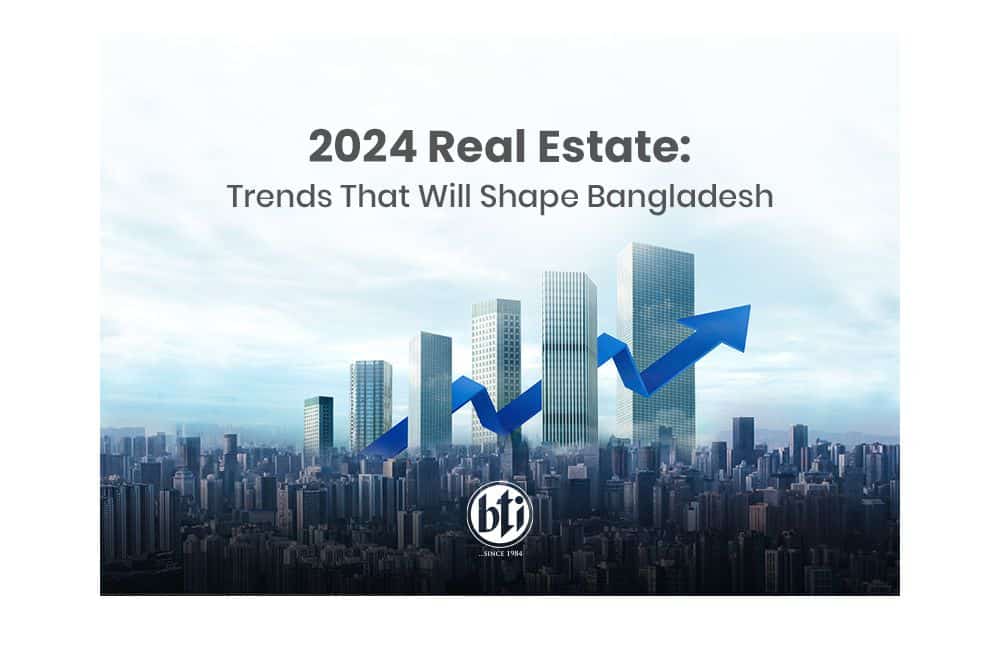
Introduction:
The real estate market in Bangladesh has been a cornerstone of economic growth, reflecting the nation’s development trajectory. As we approach 2024, the landscape of the country’s property market is poised for significant shifts and transformations. Analyzing the ongoing trends and anticipated changes is crucial for investors, stakeholders, and homebuyers looking to navigate the dynamic terrain of real estate in Bangladesh.
Real Estate Investment in Bangladesh:
Real estate investment in Bangladesh has always been an attractive avenue for both local and foreign investors. The year 2024 is expected to witness sustained interest from investors, spurred by the government’s efforts to improve infrastructure, streamline regulations, and foster a conducive investment climate. The focus on creating Special Economic Zones (SEZs) and promoting foreign direct investment (FDI) will likely stimulate the sector further, encouraging diverse investment opportunities across residential, commercial, and industrial segments.
Property Market Dynamics:
The property market in Bangladesh is multifaceted, characterized by urbanization, population growth, and evolving consumer preferences. In 2024, the market is projected to experience a continued shift toward affordable housing solutions, catering to the burgeoning middle-income population. Moreover, the rise of co-living spaces and innovative mixed-use developments is anticipated to redefine urban living experiences, especially in major cities like Dhaka and Chattogram.
Real Estate Trends:
Several trends are set to shape the Bangladesh real estate landscape in 2024. Sustainable development initiatives will gain prominence, with a focus on green buildings, energy-efficient designs, and environmentally conscious projects. Additionally, technological integration in property management, such as smart home systems and digital platforms for real estate transactions, is expected to become more widespread, enhancing convenience and efficiency for buyers and sellers alike.
Sustainable Development Initiatives:
In alignment with global sustainability goals, Bangladesh’s real estate sector is increasingly embracing eco-friendly practices. The integration of renewable energy sources, adoption of green building certifications, and emphasis on waste reduction and recycling will be pivotal. Government incentives and awareness campaigns promoting sustainable construction methods are anticipated to propel this shift towards eco-conscious real estate developments.
Economic Indicators in Real Estate:
Economic indicators play a crucial role in shaping the trajectory of the real estate sector. Factors such as GDP growth, inflation rates, interest rates, and policy reforms significantly impact property market dynamics. In 2024, continued economic stability, coupled with government initiatives aimed at supporting the real estate sector, is expected to foster a conducive environment for sustainable growth.
Conclusion:
As the year 2024 unfolds, the Bangladeshi real estate market stands at the threshold of transformation. Real estate investment opportunities abound, driven by evolving market dynamics, sustainable development initiatives, and technological advancements. Stakeholders navigating this landscape must remain vigilant, adapt to emerging trends, and capitalize on the vast potential that the sector offers, thereby contributing to the nation’s economic progress while ensuring a sustainable future for generations to come.